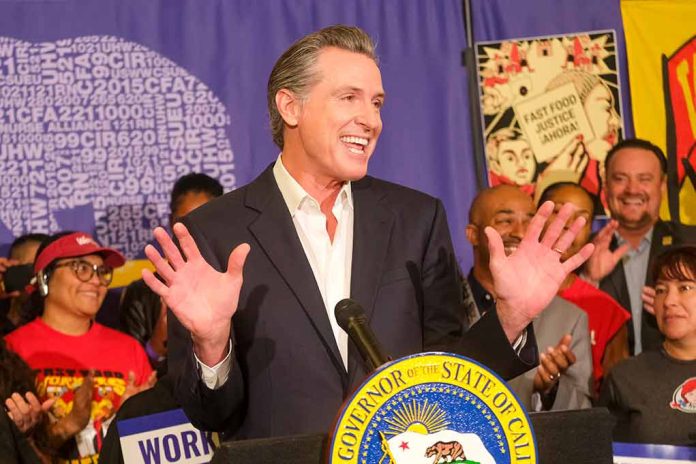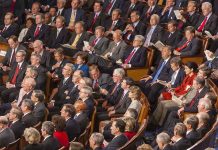
Los Angeles Mayor outraged over Governor Newsom’s homeless encampment order and Supreme Court ruling.
At a Glance
- Supreme Court ruling allows cities to enforce anti-camping laws.
- Governor Newsom issued an executive order to dismantle encampments.
- Mayor Karen Bass opposed the actions, citing concerns over criminalizing homelessness.
- Political divide among California Democrats on homelessness handling.
- Debate on effectiveness and fairness of encampment enforcement continues.
Supreme Court Ruling and Newsom’s Executive Order
The U.S. Supreme Court recently ruled that local governments can enforce anti-camping ordinances, enabling cities to clear homeless encampments without providing alternative sleeping arrangements. This decision has sparked immediate policy actions, including an executive order from Governor Gavin Newsom demanding the removal of encampments from state property. Newsom’s order emphasizes the urgency for local governments to act swiftly.
Mayor Karen Bass’s Opposition
Los Angeles Mayor Karen Bass has expressed strong opposition to both the Supreme Court decision and Governor Newsom’s executive order. Bass argues that dismantling encampments without addressing the root cause criminalizes homelessness. “The criminalization of homelessness and poverty is dangerous,” Bass stated. She has voiced concerns over the long-term impacts of these policies on the city’s most vulnerable populations.
Political Divide Among Democrats
The differences between Newsom and Bass highlight a growing political divide among California Democrats. Some officials support swift action to remove encampments, while others, like Bass, advocate for more compassionate approaches. This rift is evident as local governments wrestle with the balance between enforcement and humane treatment of homeless individuals.
Impacts on Cities and Homeless Populations
Enforcement of anti-camping ordinances could push homeless individuals to migrate to areas with less stringent regulations, leading to uneven distribution of the homeless population across cities. Additionally, a recent state auditor report criticized the lack of accountability in tracking homelessness spending. As Los Angeles prepares to vote on a new tax measure to fund homelessness programs, the debate over the best approach to tackle the crisis continues.
Los Angeles supervisors are also considering declaring that county jails will not be used as shelters for the homeless. This decision comes amidst mounting pressure to find effective solutions that address the core issues of homelessness without resorting to incarceration.
Conclusion
The controversy surrounding Newsom’s executive order and the Supreme Court ruling showcases the complexities and challenges in addressing homelessness. With political leaders split on enforcement versus compassionate solutions, the path forward remains contested. Ensuring that policies are both effective and humane will require collaboration and comprehensive planning from all levels of government.













